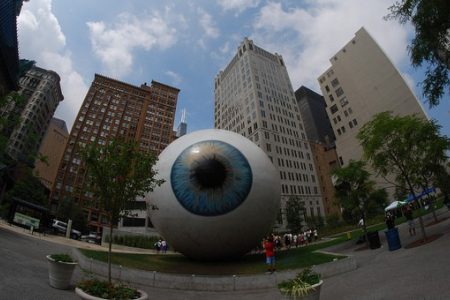Self-esteem: is there more to it than meets the eye?
Have you ever wondered where your self-esteem comes from? Maybe it’s that you consider yourself to be intelligent and successful in your work, or that your friends tell you that you have such a warm and bubbly personality...
As it turns out, none of all this really matters. When it comes to how you value yourself, many studies have shown that it is your perceived physical appearance that counts. Is it true that self-esteem could literally be only skin-deep?
Relation between inner and outer self
In a nutshell, self-esteem can be defined as a person’s overall subjective evaluation of self-worth. As the literature suggests, this inner self appears to be closely related to how we evaluate our outer self (perceptions of our appearance, attractiveness, and body image). As a result, people who evaluate their looks more positively should report correspondingly higher levels of self-esteem and vice versa.
It has been expected that this relationship would be less present for those who consider other domains of self-concept to be more important. For example, one could argue that for gifted students, academic performance is a more salient predictor of self-esteem than appearance. Likewise, athletic competence would be expected to be of the highest importance to sportsmen. Most interestingly, however, this turned out not to be the case. Even for these specific groups, perceptions of their appearance remained the best predictor of self-esteem.
The role of (social) media
Now why is it that we put so much emphasis on the way we look (or think we look)? Two possible explanations have been given. First, in contrast to other self-concept domains, such as academic or athletic competence, our physical appearance is always on display for others and for ourselves. There is no escaping it; whether it’s glimpsing ourselves in real mirrors or social mirrors (through evaluation of others), we are constantly reminded of the way we look.
Secondly, the media do an excellent job in adding fuel to the fire, by putting forth very strong and persuasive messages about the standards of attractiveness to which we should comply. Whether it is social media online or the advertising we see in magazines, television, and movies – we are constantly surrounded by the idea that having those desirable bodily features is our one- way ticket to happiness. Given that these portrayed images of beauty and appearance are often highly unrealistic and unattainable, it is not surprising that many of us feel as if we fall short of these idealized standards of attractiveness. This phenomenon, also known as ‘body shaming’, in turn takes its toll on our self-esteem.
Gender differences
As you might expect, the group most targeted and affected by these media messages is women. Studies have shown that even as early as the age of five, young girls already start to internalize the media-portrayed standards of beauty and body shapes. As girls grow older, they believe more and more that being attractive and thin is vital to living a happy life, being socially accepted, and having a successful career. Does this mean men are off the hook? Not really. Although for a long time men could get away with intelligence, status, and power, lately the cultural expectations for men have been changing. Men, like women, are now pressured to live up to societal standards for appearance, which include having a strong, muscular, and athletic physique. And most men, like most women, cannot meet these new standards of appearance; leading to an increase in body dissatisfaction and lower overall self-esteem.
A silver lining?
So does this mean we’re all “screwed” when it comes to our looks and self-esteem? Not entirely. The degree to which we think appearance is important relies heavily on so-called “cognitive schemas”. These schemas largely determine the way we think about ourselves and the salience we give to our physical appearance. Fortunately, awareness of the existence of these schemas can go a long way to shift our focus from our looks to our brains. Because after all, your self-esteem has more to it than meets the eye.
So next time you go online, try to reduce your use of Facebook, unfollow all those fit girls and guys on Instagram and, cheesy as it might sound, just like yourself for who you are.
If you are interested in reading more about the relation between perceived physical appearance and self-esteem, check out the book ‘The construction of the self’ by Susan Harter.





